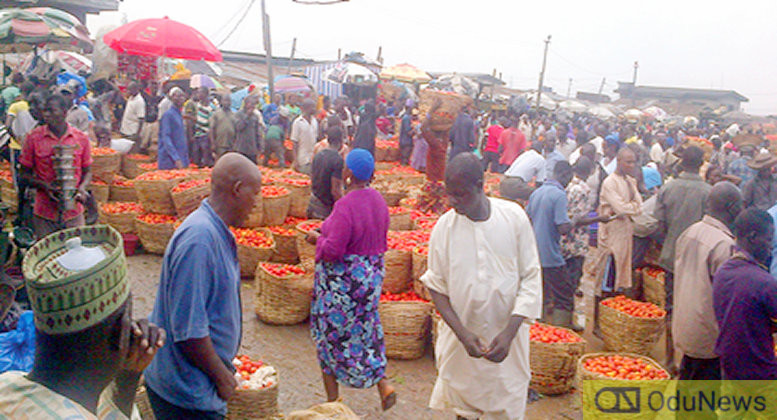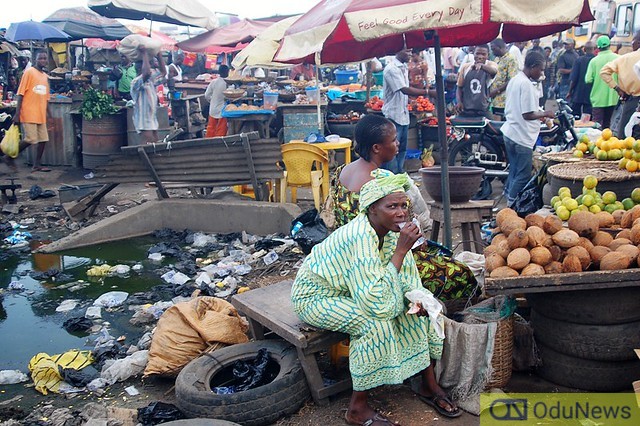Disposable income of many Nigerian households has continued to come under pressure, with many spending more on food following a continued rise in food inflation, and the consumer price index (CPI).

According to the latest data from the National Bureau of Statistics (NBS), the CPI, which measures inflation increased by 12.82 percent (year-on-year) in July 2020, or 0.26 percent higher than the rate recorded in June 2020 (12.56) percent, recording the highest level since March 2018.
Similarly, the composite food index rose by 15.48 percent in July compared to 15.18 percent in June.
The rise in the food index was caused by increases in prices of bread and cereals, potatoes, yam and other tubers, meat, fruits, oils and fats, and fish.
Apart from seasonality effect typically associated with the onset of the planting season, as well as flooding in some parts of the country that must have negatively influenced the food basket, bread, biscuits, noodles, semo, and spaghetti among others are all made from wheat and Nigeria imports 90 percent of the commodity for the production of other food items.
With the foreign exchange scarcity, importers have had to source their dollars outside the official window at a higher cost to import, thus translating to higher cost of production, which is eventually transferred to the consumers.

According to the 2019 Household consumption expenditure report released by the National Bureau of Statistics (NBS), out of the N40.2 trillion on food and non-food items during the period, Nigerians spent N23 trillion on food alone, with food consumed outside the home gulping N4.59 trillion.
Updated data from the World Economic Forum (WEF) showed that Nigerians spend more money on food than any other country in the world. Food takes up an astonishing 58.9% of Nigerians’ incomes.
Similarly, the impact of the COVID-19 pandemic had a negative effect on Nigeria households’ total income, as a high rate of households reported income loss since mid-March. About 79 per cent of households reported that their total income decreased.
According to the Lagos Chamber of Commerce and Industry (LCCI), data on trends in per capita income, poverty, unemployment and food inflation, affirm the position of worsening state of affairs in the country and for consumers.
Similarly, the second round of the Nigeria COVID-19 National Longitudinal Phone Survey (COVID-19 NLPS) conducted in June, by the NBS, showed that although the working situation seems to be improving with the easing of lockdown, Nigerian workers and consumers are facing challenges in all sectors of the economy.
According to the survey, many Nigerians have been struggling to survive, as there has not been any significant improvement in safety nets or other sources of income assistance from institutions and/or remittances.
On a month-on-month basis, the Headline index increased by 1.25 per cent in July, 0.04 per cent rate higher than the rate recorded in June 2020 (1.21) per cent.
The percentage change in the average composite CPI for year-on-year ending July 2020, over the average of the CPI for the same period was 12.05 per cent, a 0.15 per cent point increase from 11.90 per cent recorded in June 2020.
The urban inflation rate increased by 13.40 per cent (year-on-year) in July 2020 from 13.18 per cent recorded in June 2020, while the rural inflation rate increased by 12.28 per cent from 11.99 per cent in the review period.
On a month-on-month basis, the urban index rose by 1.27 per cent in July, up by 0.04 from 1.23 per cent recorded in June, while the rural index also rose by 1.23 per cent up by 0.04 from the rate recorded in June 2020 (1.19) per cent.
The corresponding year-on-year average percentage change for the urban index was 12.66 per cent in July. This is higher than 12.50 per cent reported in June, while the corresponding rural inflation rate was 11.49 per cent compared to 11.36 per cent recorded during the period.
On a month-on-month basis, the food sub-index increased by 1.52 per cent in July, up by 0.04 per cent points from 1.48 per cent recorded in June.
The average annual rate of change of the Food sub-index for the 12-month period ending July over the previous 12-month average was 14.63 per cent, 0.17 per cent points from the average annual rate of change recorded in June (14.46) per cent.
The “All items less farm produce” or Core inflation, which excludes the prices of volatile agricultural produce stood at 10.10 per cent in July, down by 0.03 per cent compared with 10.13 per cent recorded in June.
On a month-on-month basis, the core sub-index increased by 0.75 per cent in July. This was down by 0.11 per cent against 0.86 per cent recorded in June.
The highest increases were recorded in prices of medical services, passenger transport by air, pharmaceutical products, hospital services, passenger transport by road, maintenance and repair of personal transport equipment, paramedical services, and vehicle spare parts.

Submit press release, news tips to us: tips@odunews.com | Follow us @ODUNewsNG
